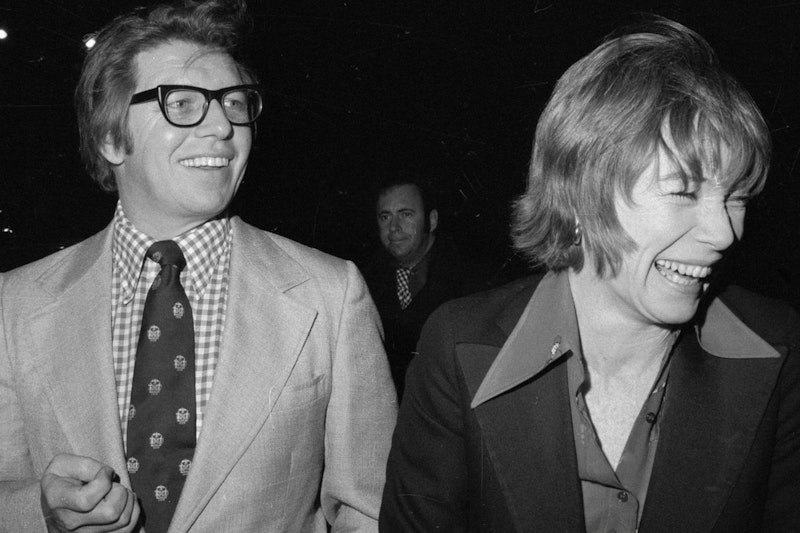The cupboard is nearly bare when you attempt to pick a smart essay about modern journalism. Given my background, I do make a stab at such declarations, most of which are useless, concentrating for the 987th time in the past month about layoffs that “threaten democracy,” and that it’s the “elites,” not “ordinary people,” who control what’s left of the media that consumers believe. I don’t believe much of anything I read, at least about politics, housing prices, migrants (illegals!), crime, wars or education; even popular culture reviews and sportswriting are peppered with asides about Biden, Trump, Schumer and TikTok. It’s not an exaggeration that a Herculean effort is required that to discern even a nugget of truth.
Last week I did read an article by William Deresiewicz, and it was a mixed bag, making some legitimate points about journalism, but marred by the author’s muddled thinking; he’s not at all, at least judged by the writing, a dim man, but I don’t think the five-time author thought “deeply” enough about the topic—Deresiewicz used “deep” or “deeply” throughout, an awful cliché, even as he criticizes, correctly, the misuse of the word “narrative” to explain what a modern journalist doesn’t really know much about.
He begins: “I was sitting across from the professor as she went over my latest piece. This was 1986, Columbia School of Journalism, Reporting and Writing I, the program’s core course… The main thing that I learned in journalism school was that I didn’t belong in journalism school. The other thing I learned was that journalists were deeply anti-intellectual… Now they’re something else: pseudo-intellectual. And that is much worse.”
Deresiewicz meanders into the now-trite explanation that today’s media is sullied by too many rich kids who’ve never had to consort with “ordinary people,” which skewers their work in attempt to please their fellow “elites,” and reaping the rewards of the “right” country clubs, squash courts, restaurants, etc. What Deresiewicz, before he launches into another tribute to long-ago working-class reporters like Pete Hamill and Jimmy Breslin (before they became celebrities), doesn’t mention is that he holds three degrees from Columbia University, and was a professor at Yale for 10 years, leaving after he was denied tenure.
He ignores that while the New York City tabloids were the “working people’s papers,” broadsheets like The New York Times, The New York Herald Tribune, The Wall Street Journal and The Boston Globe were selective in hiring and part of America’s Permanent Government. When John F. Kennedy complained about daily newspapers in the early-1960s, he wasn’t referring to the tabloids (although he undoubtedly relished the gossip).
Deresiewicz also writes: “Both were Irish Catholic: Hamill was from Brooklyn, Breslin from Queens, long before those boroughs were discovered by the hipsters and condo creeps… Hence the recognition, in figures like Breslin and Hamill, that the world is chaotic, full of paradox, that people evade our understanding. Hence their sense of curiosity and irony and wonder. At the source of their moral commitments, they had not rules but instincts, a feeling for the difference between right and wrong. For the masses, they felt not pity but solidarity, since they were of them.”
Never mind, for example, that Hamill was a friend of Bobby Kennedy, helped convince him to run for the presidency in 1968, and then covered the brief campaign.
My question is why Deresiewicz wasted money—if that was a concern—on journalism school in the first place. In 1986. I’m eight or so years older than Deresiewicz, but when I graduated from Johns Hopkins (my primary education there was the school paper, The News-Letter), I didn’t even consider journalism school, not only because it was too expensive, but mostly because I wanted to start my career in the field, for better or worse. Most of my colleagues at Baltimore’s City Paper and New York Press skipped it too, although there was an extraordinarily talented fellow I worked with at The News-Letter who did accede to the traditional route necessary to land a job at a major newspaper. You couldn’t just show up at, say, The Baltimore Sun—in those days still a respected daily newspaper—and expect a desk. You were told to get “seasoning” at smaller dailies, sort of like MLB’s minor leagues, and “work your way up the ladder.” He did: went from papers in Allentown and New Jersey to The Philadelphia Inquirer and then The Los Angeles Times, until that paper was in trouble and is now, at 68, working at the shriveled San Antonio Express-News.
I don’t disagree with Deresiewicz that today’s “journalists” are a sorry lot and I suspect he’s correct that many are “pseudo-intellectual,” although who knows, it could be that an ostensible moron like MSNBC cable host Chris Hayes spends his free time re-reading Baudelaire, Melville and Thomas Wolfe. On the other hand, it’s foolish to pin the “pseudo” label on current reporters and essayists like Bret Stephens, Kimberly Strassel, John Tamny, Thomas Frank, Christopher Caldwell, Oliver Bateman, Jeffrey St. Clair, Matt Welch, Andrew Ferguson, James Bowman and Emina Melonic. You may or may not agree with their published work, but there’s no doubt that they’re well-read and don’t just cherry-pick a random observation from Milton, Blake or Carlyle. I’d even guess that David Brooks, a journalistic scourge since the 1990s, is hardly “anti-intellectual,” and does have a presentable understanding of The Federalist Papers.
Deresiewicz does end with an indisputable truth: “Journalists are now incentivized to opinionate.” No shit.
—Follow Russ Smith on Twitter: @MUGGER2023

